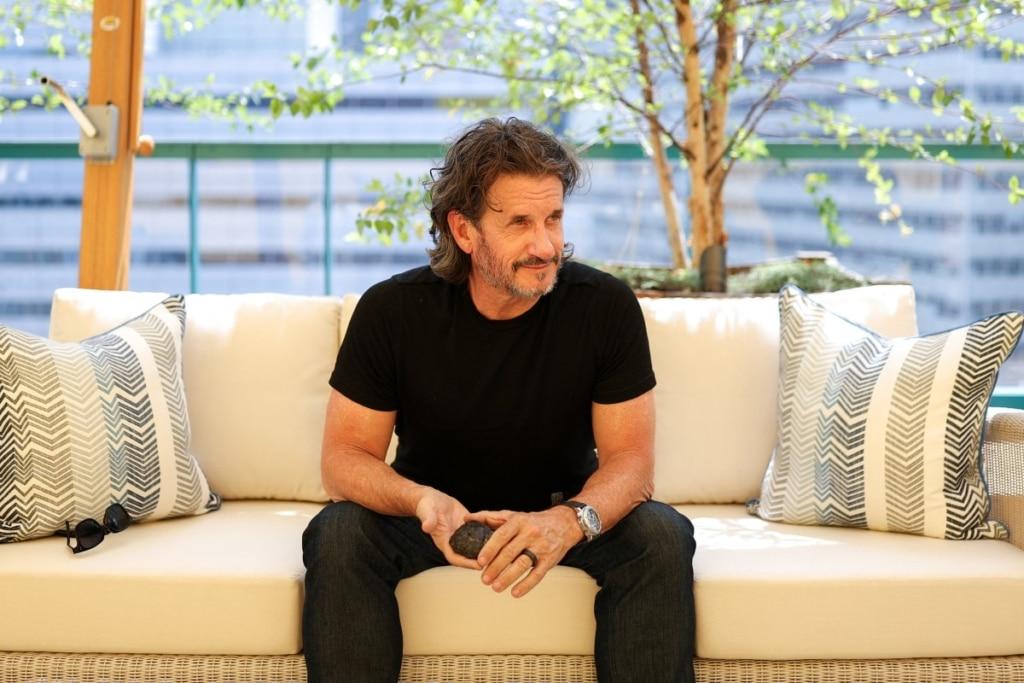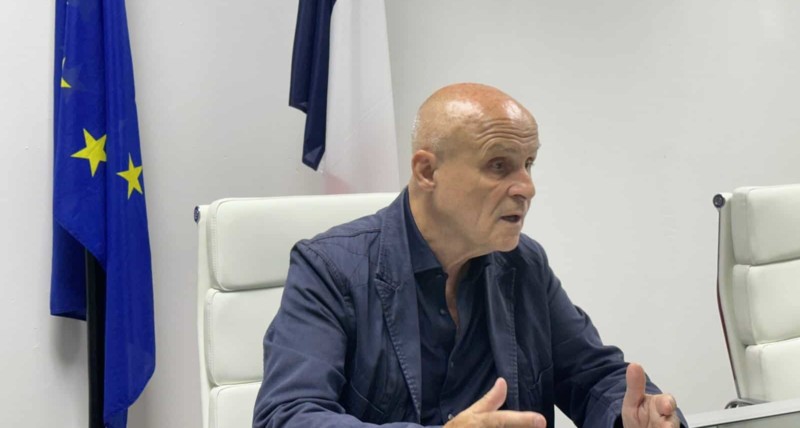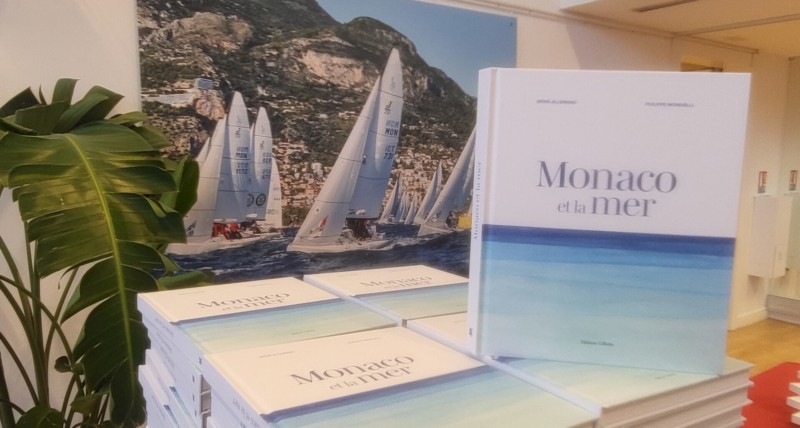Barron doesn’t back down. The wealthy businessman Gerard Barron is the mastermind behind The Metals Company (TMC), a Canadian firm aiming to become the first in the world to mine precious metals from the ocean depths — as early as 2026. His project is close to becoming a reality thanks to his close ties with U.S. political circles — that is, if the International Seabed Authority (ISA) gives the green light. Here’s a closer look.
Is the world standing in the way of the unofficial Sean Penn lookalike’s grand plans? That’s what Gerard Barron, the 58-year-old Australian tycoon and head of The Metals Company (TMC), seems to believe. On April 27, his deep-sea mining company filed an application with the U.S. government to begin exploiting international seabeds. Just three days earlier, President Donald Trump had signed an executive order to open the doors to large-scale deep-sea mineral extraction. The strategy is seen as a workaround to bypass the United Nations’ International Seabed Authority (ISA), which oversees mining in international waters and has yet to issue a single exploitation license.
Member states of the ISA have long struggled to agree on a mining code that would regulate this emerging deep-sea industry. Bypassing the ISA through the Trump administration is all the more strategic since the United States is not a member of the authority and therefore considers itself unbound by its rules.
Small Stones, Big Profits
The fallout? Some of TMC’s partners are pulling out. A Japanese company once tied to TMC to process deep-sea minerals is reconsidering the partnership to preserve its international credibility. Meanwhile, the Canadian startup’s stock has skyrocketed — from $1.83 at the end of March to $7.87 by the week of July 20.
A reason to smile for the long-haired, slicked-back Barron, often seen flaunting a polymetallic nodule — small, cannonball-like rocks rich in manganese, and to a lesser extent, cobalt, nickel, and copper. These rocks, sucked up from abyssal plains 4,000 meters deep by industrial ships, could help manufacture electric car batteries and wind turbines. According to TMC, their extraction is essential for the “energy transition” and the “unprecedented global demand for metals in the decades to come.”
A Master of Marketing
“Gerard Barron likes to present himself as a pioneer in clean technologies,” explains marine explorer Victor Vescovo. “That’s purely marketing. When he took the company public in 2021, the investor pitch was filled with images of electric cars, wind turbines, and solar panels. But over the past six months, he’s pivoted entirely to position himself as a strategic minerals supplier — especially to the United States,” adds Vescovo, who is also a successful investment fund manager.
The new focus? Ensuring U.S. dominance in seabed mining against China — a goal meant to support America’s green transition and boost the economy. Barron claims that deep-sea mining could create 100,000 jobs and add $300 billion to the U.S. GDP over ten years.
From Magazines to the Mariana Trench
Barron’s earlier ventures include ad tech and magazine publishing. But his reputation was built through mining investments. In 2001, his tennis partner David Heydon introduced him to Nautilus Minerals, a company focused on underwater mining. Barron was instantly captivated by the idea of oceans teeming with metals and invested $600,000, rallying more investors.
The Papua New Guinea Disaster
In 2011, Nautilus struck a deal with the government of Papua New Guinea to exploit seafloor massive sulfide deposits, ancient mineral formations at the bottom of the sea. The project — Solwara 1 — ended in failure: $500 million was spent with no metals recovered, and the seabed was left damaged.
Dr. Helen Rosenbaum, research coordinator for the Deep Sea Mining Campaign, a coalition of 130 international organizations against seabed mining, recalls:
“Thirteen years ago, I was working with NGOs on New Britain Island, about 70 kilometers from the mining site. The local communities were extremely concerned — about their livelihoods, food security, cultural heritage, and their future. The sea is central to everything there.”
Nautilus went bankrupt in 2019. Papua New Guinea lost $120 million, while Barron walked away with $30 million, having sold his shares in time. His comment on the collapse? “It wasn’t my company.”
The debacle prompted Pacific Island nations to advocate for a moratorium on deep-sea mining. Since then, 38 countries — including France — have joined the call. In 2022, at COP27 in Sharm el-Sheikh, France even pushed for a complete ban on deep-sea mining, as noted by Hervé Berville, then Secretary of State for the Sea.
A New Ship, Another Shipwreck?
Despite the Solwara disaster, Barron and Heydon didn’t quit. In 2011, they co-founded DeepGreen, later renamed The Metals Company in 2021. Barron became CEO, and many former Nautilus staff followed him. Determined to clean up the image of deep-sea mining, Barron traveled the world preaching his cause, styling himself as a green tech innovator. His firm even branded him as the “Elon Musk of the abyss.”
“He’s not an engineer and has no record of technical innovation,” says Victor Vescovo. “Comparing him to someone as technically accomplished as Musk is completely off base.”
“Gerard Barron is engaged in greenwashing,” says activist Anne-Sophie Roux, European campaign lead against deep-sea mining at Sustainable Ocean Alliance. She adds:
“Scientists have repeatedly said it’s false to claim that seabed mining is necessary. When Barron argues that cobalt mining in Congo and Indonesia is a disaster — and that seabed mining is the solution — it’s a false dilemma. Seabed mining doesn’t solve those existing problems; it just creates new ones.”
According to Roux, the consequences would be irreversible:
“We’re talking about ecosystems that took millions of years to develop. If we destroy them, they may never recover. There’s also a major risk of extinction for species we haven’t even discovered yet — around 90% of abyssal species remain undocumented.”
Running Out of Ocean?
For French ocean ambassador Olivier Poivre d’Arvor, Gerard Barron is now “a pariah for serious governments that care about the ocean and the planet.” While Barron still plans to begin mining in early 2026 under a contract signed with the president of Nauru five years ago, the diplomat reminds us:
“None of TMC’s announced deadlines have ever been met.”
“Gerard Barron has been trying to mine the seabed for decades — without success. He won’t succeed next year either,” predicts Anne-Sophie Roux, citing technical, regulatory, and financial barriers. She emphasizes Barron’s speculative profile.
How long can the speculating last? At the opening of the 30th ISA General Assembly on July 21, France proposed a 10- to 15-year pause on deep-sea mining. The stakes are high — and the bets are on.




